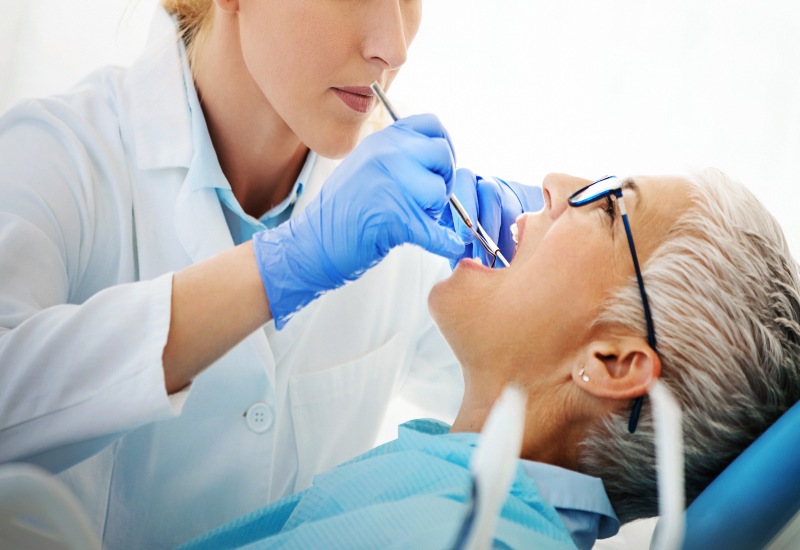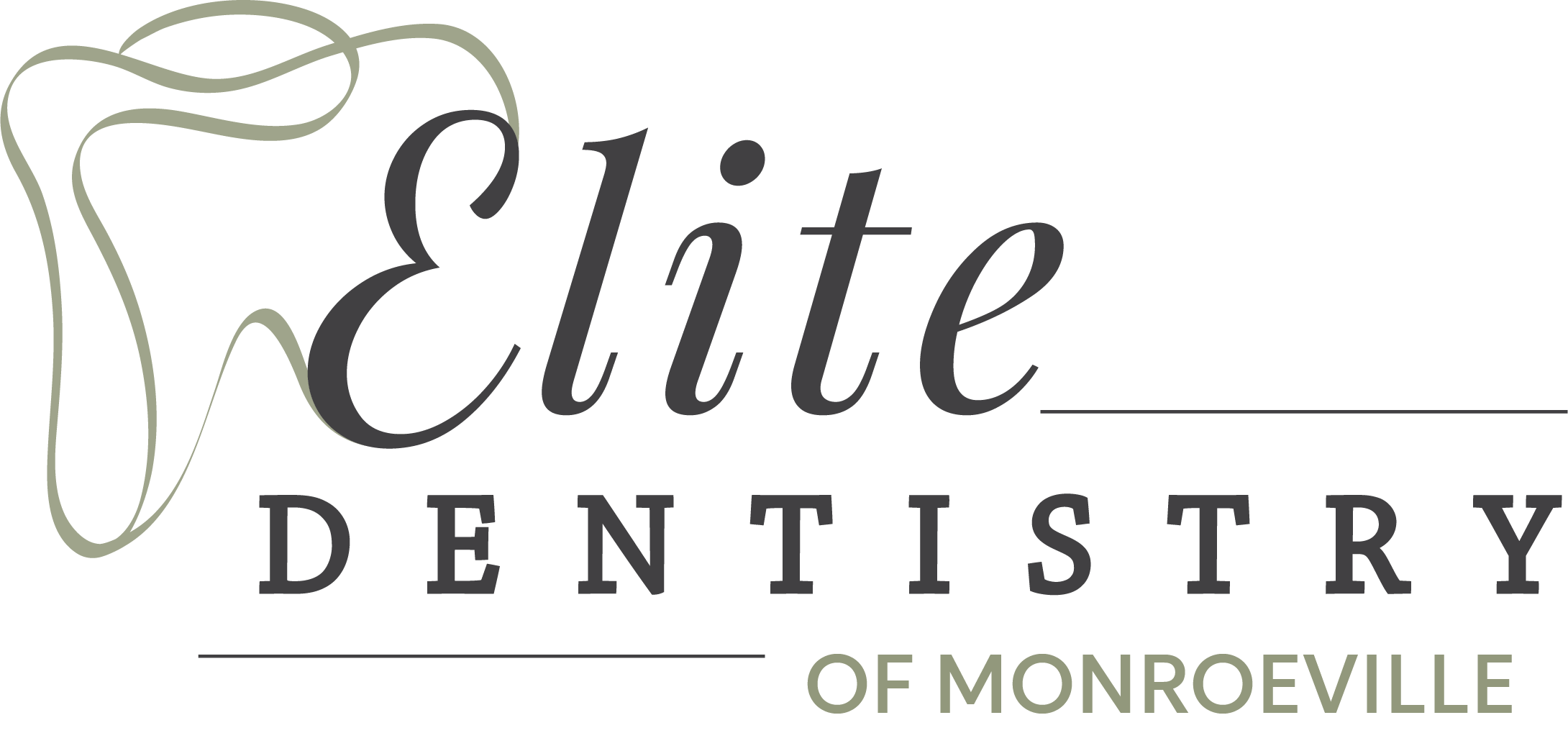Protect Your Health with Oral Cancer Screenings & Exams
Early Detection of Oral Cancer
Your routine dental checkup is a cornerstone of maintaining a healthy smile, and Elite Dentistry of Monroeville oversees early detection of oral cancer. This simple, painless examination is one of the most powerful tools for early detection of oral cancer. Understanding its importance can motivate you to take a proactive role in your long-term health. This screening is a standard part of our preventive care approach, helping to protect your overall well-being. Learn more below about what an oral cancer screening involves.

What Is an Oral Cancer Screening?
An oral cancer screening is a visual and physical examination of your mouth and connected tissues with the goal of identifying abnormalities early. Your dentist performs this check for signs of cancer or precancerous conditions. The process is quick, non-invasive, and completely painless. Your dentist will carefully inspect your lips, cheeks, tongue, gums, mouth roof, and throat. They also feel the tissues in your mouth and throat to check for unusual lumps or bumps.
Why Early Detection of Oral Cancer Saves Lives
One of the most important reasons to include oral cancer screenings in routine dental visits is the chance to catch issues early. Here’s how early detection dramatically increases the likelihood of successful treatment and recovery:
- Early Detection Saves Lives—Oral cancer in its early stages has a much higher survival rate. Screenings help identify problems before they become serious.
- Symptoms Often Go Unnoticed—Many people don’t feel pain or see visible signs early, so professional screenings are crucial for effective treatment.
- Routine Exams Are Key—Dentists can spot suspicious changes during regular checkups, preventing more complex treatments later.
- Improved Treatment Outcomes—A proactive approach leads to quicker, more effective care. Including oral cancer screenings in your dental routine supports your overall health strategy.
Common Oral Cancer Symptoms to Watch For
While regular professional screenings are crucial, knowing early warning signs can help you act sooner. Monitoring your oral health between dental visits helps you catch potential issues early. Here are common oral cancer symptoms to watch for:
- Sores That Don’t Heal—A sore or irritation that lasts longer than two weeks could be a red flag. Even if it’s not painful, it’s worth checking.
- Unusual Patches or Discoloration—Red or white patches inside your mouth may indicate abnormal tissue changes. Your dentist should always evaluate these.
- Persistent Pain or Numbness—Never ignore ongoing tenderness, pain, or numbness in your mouth or lips. These symptoms may signal underlying issues.
- Lumps or Trouble Swallowing—A lump, thickened area, or constant throat discomfort can also be warning signs. Difficulty chewing or swallowing may require immediate attention.
How We Perform Oral Cancer Screenings During Exams
Adding an oral cancer screening to your regular preventive dental exam is quick, painless, and could be life-saving. It takes just a few extra minutes but provides valuable insight into your overall health. Here’s how we perform oral cancer screenings:
- Visual Examination of the Mouth—We use a bright light and a mirror to carefully inspect your cheeks, gums, tongue, the roof and floor of your mouth, and throat.
- Gentle Physical Check—We’ll lightly feel your neck, jaw, and under your chin for lumps or irregularities. This step helps us detect any unusual swelling or firmness.
- Tongue and Tissue Inspection—We may ask you to stick out your tongue so we can check for color, texture, or movement changes.
Who Is at Higher Risk for Oral Cancer?
Knowing what increases your oral cancer risk can help you protect yourself with informed health choices. The following factors may increase the risk of oral cancer:
- Tobacco Use—Smoking or using smokeless tobacco significantly increases your chances of developing oral cancer. Avoid cigarettes, cigars, pipes, and chewing tobacco.
- Heavy Alcohol Consumption—Drinking alcohol excessively raises your risk even more. When combined with tobacco use, the danger increases dramatically.
- Sun Exposure and Genetics—Prolonged sun exposure can increase the risk of lip cancer. A family history of cancer or a weakened immune system can also contribute.
- HPV in Younger Adults—Human papillomavirus (HPV), particularly strain 16, is now a leading cause of oral cancers. It’s essential to be aware of this link, especially if you’re under 50.
What Happens If We Spot Something Suspicious?
If your oral cancer screening reveals an unusual area, there’s no need to panic. Most abnormalities are not cancer, but we take every precaution to protect your health. Here’s what happens if we spot something suspicious during your screening:
- We’ll Talk Through What We See—If we find anything concerning, we’ll explain it immediately. You’ll know what we’re considering and why it’s a concern.
- Start With Monitoring—Often, we schedule a follow-up in a week or two. This visit lets us see if the area heals or changes.
- May Recommend a Biopsy—If the issue persists, we may take a small tissue sample for testing. A biopsy is the only way to confirm a diagnosis.
- Offer Support in the Process—Our dental team at Elite Dentistry of Monroeville prioritizes your care and peace of mind, including financial and insurance
Why You Should Never Skip Oral Cancer Screenings
Oral cancer screenings are a simple yet powerful part of preventive care. Skipping them means missing a critical chance to catch problems early. Here’s why you should never skip oral cancer screenings:
- Detect Early Signs—Oral cancer can develop without pain or apparent symptoms. A trained dental professional can detect subtle changes.
- Quick and Effective—The exam takes just a few minutes during your regular checkup. Yet those few minutes can have a lifelong impact on your health.
- Track Changes Over Time—Routine screenings establish a baseline for oral tissues to catch any unusual developments early.
- Proactive Care Protects Your Health—Making screenings a priority ensures a more complete approach to your well-being. It’s a small step with potentially life-saving benefits.
Protect Your Health With Regular Oral Cancer Screenings
Your oral care provides a window to your overall health, so Elite Dentistry of Monroeville is here to help with early detection of oral cancer in Monroeville, PA. An oral cancer screening is a straightforward, quick, and painless part of your routine dental exam that offers powerful protection. You can take an active and empowered role in safeguarding your health by prioritizing oral cancer screenings. Early detection is the key to successful treatment, and your dental team is the first line of defense. Contact us today to schedule an appointment if you have concerns or need a checkup.
Frequently Asked Questions About Oral Cancer Screenings
If you’re unfamiliar with oral cancer screenings, you might wonder what they involve and how often you need one. Here are answers to some common questions to help you feel informed and at ease:
- Is an oral cancer screening painful? — An oral cancer screening is an entirely painless and non-invasive process. It involves a quick visual and physical examination of your mouth and neck.
- How often should I get an oral cancer screening? — We recommend at least once a year for most adults. We perform them as a standard part of our routine dental exams.
- Does an abnormal spot always mean I have cancer? — Most sores or discolored patches found during a screening are benign, like a burn from hot food or an irritation. However, it’s always best to have a dentist evaluate any abnormality.
